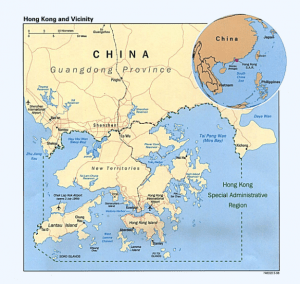Hong Kong security law

Hong Kong and China relationship
- Hong Kong, a former British colony, was returned to the People’s Republic of China in 1997 under a policy known as “one country, two systems,” which promised the territory a high degree of autonomy.
- As a Special Administrative Region (SAR), Hong Kong allows freedoms not enjoyed in mainland China, including freedom to protest and an independent judiciary.
- But that autonomy, guaranteed under a mini-constitution known as the Basic Law, expires in 2047. The joint signed declaration does not state what will happen in 2047 after that agreement officially ends.
Location
- Located on the southeast coast of China, Hong Kong’s strategic location on the Pearl River Delta and South China Sea has made it one of the world’s most thriving and cosmopolitan cities.
Background
- Recently, China has introduced the draft of a controversial national security law in Hong Kong in its parliament to tighten China’s control over the former British colony.
- Many sections in Hong Kong are protesting against the law who fear that it could be the biggest blow to the territory’s autonomy and personal freedoms since 1997 when it came under Chinese rule.
- However, China has sought the support and understanding of India and other countries for its new national security law, saying the new legislation is aimed at containing the secessionist forces in Hong Kong.
Why in News?
- The US has expressed concerns over China’s new national security law for Hong Kong, amid rising tensions between Washington and Beijing in the wake of the coronavirus pandemic.
Subscribe
Login
0 Comments
